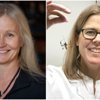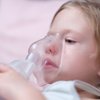Fritextsökning
Artiklar per år
Innehållstyper
-

A tiny animal with great importance
From the mythical Ganges River to the less sacred, but considerably cleaner waters in KI's aquariums in Solna. The little zebrafish has made an unconscious career – as an increasingly important model organism in medical research.
-

Who pays for Rebecca Doe – and all of us?
Anna Törner on how easily we get used to the idea that healthcare is free - when it really is about how and who pays for it
-

The art of successful licensing – “A lot has to align”
Sharp research, strong data and a high level of innovation are all very good, but more than that is required to achieve the goal of many biotechnology companies: to succeed with a licensing deal.
-

Ukraine war fuels rise of totally resistent bacteria
War-torn Ukraine is not just suffering from hostile attacks from a foreign aggressor, but also from the threat of a totally resistant and contagious bacteria.
-

Security flaw in Swedish breast cancer screening software – woman passed away
A lack of safeguard in Sectra's software led to a woman with breast cancer receiving an incorrect diagnosis. She later passed away. The software is used in 20 out of 21 regions in Sweden. It is also used in neighbouring Nordic countries. “Extremely serious,” says the Sectra CEO to Medtech Magazine.
-

Developing rapid diagnostics for sepsis – “Every hour counts”
Finding the right antibiotic in the right dose – with an ultra-fast analysis method. Gradientech's product solution is currently used in routine diagnostics at several hospitals in Europe – and the next target is the US market.
-

Health politician Lina Nordquist: ”I find it hard to be idle”
She is the pharmacist and researcher who grew tired of the breakthroughs that never materialised and knowledge that never seemed to reach patients, so she decided to make a change from within. Life Science Sweden meets Lina Nordquist, Member of Parliament for the Liberals and their spokesperson on healthcare policy, to have a conversation about reality, politics, and the need for writing.
-

First preterm infants study – a vital step for Neola
After years of developing an advanced lung monitoring system, Neola Medical has received some delightful news: permission to start its first clinical study on preterm born infants.
-

AI detects tumor disease – via voice recording
A short voice recording along with facial images – both analyzed with an AI algorithm – can make it possible to detect the rare tumour disease acromegaly and initiate treatment at an early stage.
-

We desire talent to come here, but are we genuinely welcoming them?
Sweden faces significant challenges in creating a truly inclusive environment that makes international professionals feel welcome, valued, and able to build meaningful careers, writes Sarah Lidé in a column.
-

The business coach: “We need to learn from our mistakes”
The past year has been challenging for many biotech companies, with several comapanies facing financial stress and bankruptcy. To understand how entrepreneurs can navigate these tough times, Life Science Sweden spoke to Pia Keyser, a business coach at Umeå Biotech Incubator, who has worked with many companies in the industry.
-

FHM ska leda expertlabb för ebola och okända virussjukdomar
Folkhälsomyndigheten har fått ansvar för att driva det europeiska referenslaboratoriet för smittsamma sjukdomar som ebola, marburg och rabies. Uppdraget omfattar även nya i dag okända virussjukdomar.
-

Large study: The benefits and risks of obesity medications
Medications such as Ozempic can reduce the risk of a range of different diseases and health conditions but also increase the risk of others. This is according to a large American study where the connections between GLP-1 receptor agonists and the risk of a variety of health outcomes have been examined.
-

The future of healthcare in focus: ”Together, things happen”
In march, it’s once again time for Fokus Patient, an event for the industry where the patients’ perspective takes center stage. It’s a great way to spread knowledge in Sweden and around the world, according to the initiator Penilla Gunther
-

Tio life science-projekt får miljonanslag – ny utlysning öppnar
En rad life science-projekt har fått miljonanslag i ett svenskt proof of concept-program. 13 januari öppnar en ny utlysning.
-

FDA approves new cystic fibrosis therapy
A new treatment for cystic fibrosis has been approved by the U.S. Food and Drug Administration (FDA).
-

New cell therapy raises hope for curing type 1 diabetes – "Never succeeded before"
For the first time, a patient with type 1 diabetes has undergone an islet transplantation using genetically modified insulin-producing cells that do not require immunosuppressive drugs. "A major immunological breakthrough," says Professor Per-Ola Carlsson, who leads the clinical study, to Life Science Sweden.
-

Rise and Scantox cease conducting animal testing in Stockholm
Access to in vivo toxicology services is significantly decreasing in the Stockholm area as Rise shuts down animal testing and Scantox reorganizes. ”The costs are high, and demand is weak”, says the division manager at Rise to Life Science Sweden.
-

Hypothesis testing versus conspiracy theory
"How do you know what is a conspiracy theory and what is a reasonable, scientifically based conclusion?" In a column, Ingrid Lönnstedt reflects on this question.
-

Large study on milk: Risky for women but not for men
The risk of ischemic heart disease (IHD) and acute myocardial infarction (MI) increased for women with milk intake levels higher than 2 glasses per day, while no such association was found in men, according to a new large Swedish study.
-

“Research is always a lot of failures and a few successes”
Gene therapies open up fantastic possibilities, but they are also extremely expensive to produce. Genenova aims to change that and make the treatments accessible to more people. “Our overall ambition is to reduce costs a hundredfold”, says professor Johan Rockberg at KTH Royal Institute of Technology in Stockholm.
-

Anna Törner: ”If I fall seriously ill, I’ll move to Finland”
”It is both undignified and undemocratic that cancer patients must travel to Finland to uphold a façade of fairness that does not truly exist”, Anna Törner writes in a column.
-

In search of Marcel Proust's lost health
A great writer, but also a weak person and a hypochondriac. That has been the usual image of Marcel Proust. But the pediatrician and literary scholar Carl Lindgren paints a partly different picture in a new book about the French master's life, health and attitude towards physicians.
-

Investigations against AstraZeneca: ”Chinese interests may be behind them”
Why are there several investigations against AstraZeneca employees in China right now? Life Science Sweden continues to seek answers.